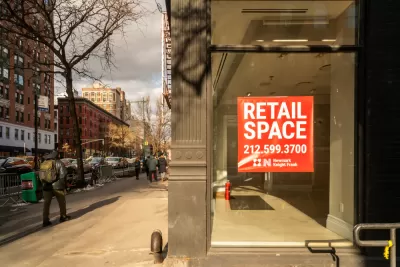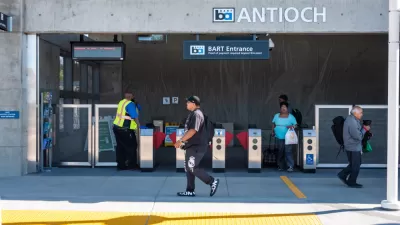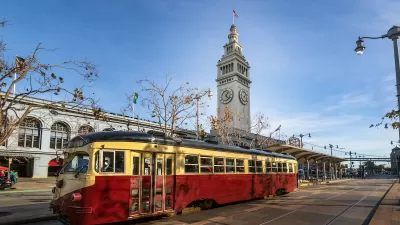The world has gone through three turbulent years of Covid-19. The Brookings Institution continues its analysis of inclusive economic growth in 192 metropolitan areas in the U.S. during this period with the publication of Metro Monitor 2023.

The three- year-anniversary of the World Health Organization's declaration of the coronavirus pandemic passed without much fanfare on March 11 as the world is no longer experiencing the public health crisis that marked the first two years. The economic recovery continues, and measuring it all, with an eye on inclusive growth, is the Brookings Institution.
The first year saw an acute recession, followed by “a rapid jobs recovery in 2021, and high and sustained inflation in 2022,” write researchers Joseph Parilla and Glencora Haskins of Brookings Metro on Feb. 28, 2023. The unexpected and unforced invasion of Ukraine by Russia on February 24, 2022, greatly exacerbated inflation in much of the world, particularly in terms of food and energy.
Now, three years since the beginning of the pandemic, our newly released Metro Monitor provides the first comprehensive look of how the crisis impacted inclusive growth across 192 U.S. metro areas with populations of at least 250,000.
The Metro Monitor examines economic performance across five broad categories: growth, prosperity, overall inclusion, racial inclusion, and geographic inclusion.
Table 1 shows the 12 economic indicators, including GDP, average wages, and employment rate, that were used to measure the first four categories.
South scores highest
In the South, 31% of metro areas had a “Resilient” performance, meaning their inclusive growth score ranked in the top half of the distribution in both periods. Florida exemplifies this trend. Eleven of the state’s 16 metro areas with more than 250,000 people were in the “Resilient” category—even the communities most impacted by major hurricanes over the last decade, such as Port St. Lucie and Crestview-Fort Walton-Destin.
San Francisco Bay Area
“The San Francisco metro area saw an economic decline during the early pandemic that was one of the most dramatic in the country,” according to the Brookings index, reported Ronald Li for the San Francisco Chronicle on March 2.
Between 2011 and 2019, the San Francisco region, which includes the East Bay, ranked fourth overall on inclusive growth. But the region tumbled to 109th based on data between 2019 and 2021, reflecting the pandemic’s toll on the job market and new businesses amid some of the strictest health measures in the country and a widespread shift to remote work.
“San Francisco performed worse across the board on overall inclusion indicators (employment rate, median earnings, and relative income poverty rate) from 2019-2021 than they did in the pre-pandemic period,” [Parilla, director of applied research at Brookings Metro] said in a statement.
Planetizen has been monitoring the Brookings Monitor, with posts in 2020, 2018 and 2017:
-
Metro Monitor 2020 Report Identifies Uneven Growth Around the United States, March 8, 2020, Brookings
-
Uneven Geographic Performance Defines This Economic Boom, February 22, 2018, Brookings
-
Which U.S. Cities Are Growing Inclusively? May 5, 2017, Brookings
Additional post on inclusive economic urban growth based on research from the Urban Institute:
- Where the Economic Recovery Has Been Most Inclusive, May 1, 2018, Color Lines.
FULL STORY: Metro Monitor 2023: Examining pandemic-era patterns of inclusive growth across the U.S.

Study: Maui’s Plan to Convert Vacation Rentals to Long-Term Housing Could Cause Nearly $1 Billion Economic Loss
The plan would reduce visitor accommodation by 25% resulting in 1,900 jobs lost.

Alabama: Trump Terminates Settlements for Black Communities Harmed By Raw Sewage
Trump deemed the landmark civil rights agreement “illegal DEI and environmental justice policy.”

Why Should We Subsidize Public Transportation?
Many public transit agencies face financial stress due to rising costs, declining fare revenue, and declining subsidies. Transit advocates must provide a strong business case for increasing public transit funding.

Paris Bike Boom Leads to Steep Drop in Air Pollution
The French city’s air quality has improved dramatically in the past 20 years, coinciding with a growth in cycling.

Why Housing Costs More to Build in California Than in Texas
Hard costs like labor and materials combined with ‘soft’ costs such as permitting make building in the San Francisco Bay Area almost three times as costly as in Texas cities.

San Diego County Sees a Rise in Urban Coyotes
San Diego County experiences a rise in urban coyotes, as sightings become prevalent throughout its urban neighbourhoods and surrounding areas.
Urban Design for Planners 1: Software Tools
This six-course series explores essential urban design concepts using open source software and equips planners with the tools they need to participate fully in the urban design process.
Planning for Universal Design
Learn the tools for implementing Universal Design in planning regulations.
Smith Gee Studio
Alamo Area Metropolitan Planning Organization
City of Santa Clarita
Institute for Housing and Urban Development Studies (IHS)
City of Grandview
Harvard GSD Executive Education
Toledo-Lucas County Plan Commissions
Salt Lake City
NYU Wagner Graduate School of Public Service





























